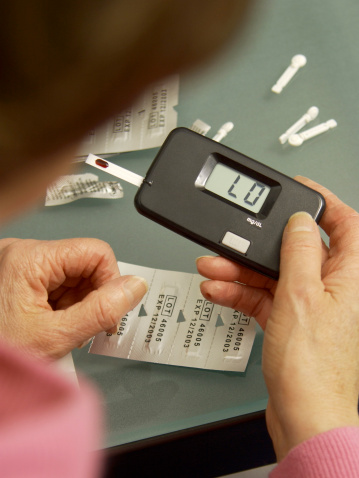Diabetes Q and A
By Janis Roszler, MSFT, RD, CDE, LD/N
Q I’m going to see my doctor in a few weeks. Should I ask for a flu shot?
A You should definitely speak to your doctor about this. Having the flu can be dangerous for anyone, but it is especially risky for people with diabetes and other chronic health problems. The National Foundation for Infectious Diseases recently reported that despite the fact that the U.S. Centers for Disease Control and Prevention and the American Diabetes Association urge people with diabetes to get yearly flu shots, very few get them. The injections don’t give 100 percent protection, but they should make it more difficult for you to catch the flu. For extra safety, ask those around you to get shots too. You are less likely to get the flu if the people around you don’t have it.
Q Can type 2 diabetes turn into type 1?
A Type 2 never turns into type 1 and visa versa. Type 1 is an autoimmune disease which attacks the insulin-producing beta cells of the pancreas and quickly halts all insulin production. On the other hand, most people who have type 2 initially produce plenty of insulin, but their bodies ignore it or don’t use it properly. There is a slow-developing form of type 1 that is often mistakenly diagnosed as type 2 in its early stages. It is known as type 1.5. Treatments for all of these types of diabetes are similar – healthy eating, exercise, maintaining a healthy weight, and medication (if needed).
Q Every time I open a new container of test strips, several don’t work at all – they are total duds. Is this common? Why is it happening so often?
A This is not common. Take a careful look at how you handle the strips. Glucose monitor test strips are very sensitive and can be damaged if you don’t store or use them correctly. Here are some guidelines:
- Toss strips out after their expiration date.
- Replace the cap as quickly as possible.
- Keep them in a dry location – never in the bathroom.
- Don’t store them in a sunny area or near heat.
- Don’t touch the end that is going to receive blood until it is time to use it.
- Don’t push too hard when you put a strip into your meter or you will receive an error reading.
If this problem continues to occur, try a different meter.
*please consult with your healthcare provider before making any changes to your diabetes regimen.
©1995-2015 OmniChannel Health Media. All rights reserved.
OmnichannelHealth Media, publisher of CDiabetes.com, does not provide medical advice, diagnosis or treatment. See additional information.

